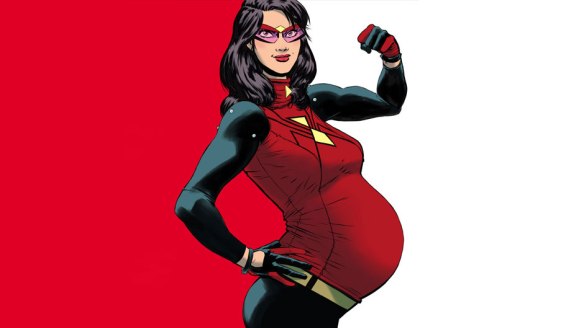BROCK STONE
Detroit, Michigan Thanksgiving 1956
General Public—no, Brock Stone; the General was dead to him now—made it as far as Detroit before the withdrawals started. While there may not have been any magic super-serum that transformed him from regular Joe to G.I. Jehovah, there had been a lot more than extra ammo and mystic weapons tech in those belt pouches. On the streets of Chicago, he’d left a pharmacopia of substances that had made General Public possible. The stimulants to improve his speed and agility, not to mention keep him conscious and in so-called fighting form for days at a stretch. Also the senso-enhancers that let him notice absolutely everything within the parameters of his sight, touch, hearing and smell, the mood stabilizers that allowed him to appear the perpetual paragon of unwaveringly upbeat virtue and fortitude, the constant synth-tosterone injections that increased his strength exponentially but made maintaining that supposed virtue off the battlefield that much more unlikely. Not to mention the powerful painkillers that were meant to dull the negative effects of the sensos, which had the unfortunate side effect of making every injury feel even more profound than it was. Problem was, he had to keep taking that stuff in regular and frequently increased dosages pretty much all the time in order to keep up the image. And if/when his supply went dry, which was wont to happen in the privations of a wartime setting, he was well and rightly screwed, crashing into an exhausted gibbering shivering wreck until he could sleep off the comedown or reach a resupply station. He once hid in a Bavarian barn for nearly two weeks waiting for a drop, more afraid of being found out by his own men than caught out by the Nazis. He finally managed to regain enough strength to make his escape by castrating six of the farmer’s bulls and devouring their testicles as a midnight snack.
Now he was going cold turkey, a strung-out ex-hero on the run, if not from actual justice, at least from the burden of being its living symbol.
He found a hotel—a flophouse really—in the heart of downtown, rented a room with the two dollars he’d found in the hollowed-out bootheel of a snoring hobo on the freight train that carried him away from his final battle and deposited him here. Dragged himself up six flights of stairs, kicking at rats with the last of his strength, their rodent hisses and snarls putting him in mind of Doktor Spleisser’s hideous mutant Dobermenschen. Staggered to the door past a sneering whore who briefly transformed into the uber-bitch Sister Hitler, the hapless sailor boy john on her arm never knowing the tortures that awaited him behind her door. Belly-crawled to the bed across a carpet of the dead and dying, trying not to put his hands in the guts and gore that spilled from yawning wounds. Climbed into the bed using the thin blanket like a hastily made rope ladder trailing from a speeding gyrocopter, a hateful face staring down at him from the cockpit, trying to kick him loose with a savage boot. He made it anyway, and threw himself down on the lumpy mattress before the hallucinations kicked off in earnest.
The neon sign blinking outside his window became the red flash of battlefield explosions, and Brock jerked away in spastic reflex. The shouts of people passing by down on State Street were the shocked and terrified screams of doomed soldiers who just wanted one more chance to see their mamas, or kiss their best girls. Brock prayed for unconsciousness, to a God he was sure had abandoned them all, but open or shut, all his eyes could see were nightmares.
All fighting men were witnesses to the unspeakable, but as the appointed savior of the free world, General Public beheld things that regulation dogfaces could scarcely comprehend.
At the entrance to the Hollow Earth, dead Nazi foot soldiers rose once again from the Antarctic snow, mindless killing machine-men with crudely implanted electrodes sending orders to their otherwise thoughtless brains. In his memory, he’d overcome them easily, knocking out servo-motors and pulling wires and watching them slow and still like unwound clocks, frozen statues in full uniform. But now they surged and swarmed, many more of them than he remembered, and it was they that were undoing him, one piece at a time. And he was helpless to stop them, helpless to reach the laughing bastard that created and controlled them, unable to stop the man as he removed Public’s silver helmet, and then his brittle skull…
As fingers sank into soft gray matter, he was transported to the skies over Luxembourg, onboard a dirigible filled with deadly nerve gas, as Air Marshal Bludwulf pumped round after round from his Luger into his impenetrable chest armor. Only this time, the bullets punched through like his uniform was tissue paper, sinking heavily into his torso and taking on lives of their own inside, not just puncturing organs or smashing against bone, but changing him in some terrible way. Bludwulf took the last parachute and jumped free—again, this wasn’t how it happened last time—laughing and falling away and firing one last shot right into the zeppelin’s hull. Just before it exploded and the world went white, Public saw that he wasn’t alone. The laughing maniac from the Hollow Earth expedition was there again, perfectly happy to sit behind the controls and let this play out, as long as it meant watching America’s Last Best Hope die in searing agony as he failed to save even a corner of the world.
The KamiNazi got the best of him on Iwo Jima, delivering a blast of energy that sent him flying nearly two hundred feet. “I’m okay,” he told the medic that rushed to his aid. “I was carried to safety by the explosion.” That was just as he remembered it. Until he looked down and saw that his legs had been blown off, one below the knee and one at the hip. The KamiNazi cheered his own victory and exploded, an orange-yellow blast of rising sun that swept across the island, flash-frying every hopeless soldier in its path. Even as the mushroom cloud turned the skies to winter night, the laughing man was there again, a strange pair of someone else’s legs tucked under his arms, and this time, he spoke. “Not to worry,” he said, and the General was pretty certain he was speaking German, but he understood the creep just fine. “I can fix you. You will be better than ever when I am through with you.” As he shoved the spare body parts against Brock’s bloodied stumps, they fused instantly into place, and he screamed in agony as his hypersenses felt every bit of the unnatural melding, and his body struggled to reject the unwanted limbs. As the shockwave and heat blast from KamiNazi’s self-destruction rolled over him in agonizing slow motion, his new foreign legs were forcing him to stand and walk…
…into a laboratory, high in the German Alps, enormous glass tubes filled with liquid, skinless bodies bobbing within like tropical fish specimens in an alien aquarium. He’d been here, too, after the fall of Berlin. There’d been no resistance then, no one to fight. Just him and a squadron of exhausted soldiers, hoping to find a comfortable bed to sleep in and maybe a hidden cache of fine European liquor, not more horror. But the horror never ended, even when the war did. And even if they were lucky to be alive, they hadn’t really escaped anything. Just moved to the next level of shit.
“It disturbs you, does it not?” The little sneering Nazi fuck again, emerging from the shadows in his labcoat, peering out from thick goggles, holding something under one arm, not a severed limb this time, but a strange jar of some kind, with dials and switches and an electric crackle emanating from one end, filled with thick green liquid and something floating inside, maybe some kind of mutant monster thing, and in the other hand, a giant steel syringe. “To know that in spite of all of your efforts, you have lost? That your own country has managed to handily snatch defeat from the jaws of victory? But did you ever believe, even if you truly managed to save it, that you would return to the same place you had left? It is not America that changed. It was always a dark and terrible place. It is you. The veil has lifted. For the first time, your eyes are truly open. And you are able to see Hell for what it is. And while it believes it has no more need of you, the hard, sad fact is, America needs you more than ever. But it is too late. And in a way, it always was…”
The Nazi rambled on, even as he plunged the syringe into the neck of the jar and drew some of the green stuff into it. When he did, the thing inside seemed to stir, and rolled toward Brock with a pair of wild staring hate-filled eyes on stalks. Eyes attached to a brain that was somehow miraculously alive in there.
Brock tried to say something. He’d been trying the whole time, but nothing would come. It was like he didn’t know any words. The brain in the jar was alive, but his was dead. And what did it matter, really? This was just a hallucination. In a few hours, or days, or weeks, all of this would end, and he’d be able to go downstairs, outside, grab a pint of whisky, eat some pork chops, find a girl to bang. And everything would be fine. Just fine.
“We are here, you know? Even as we speak—well, even as I speak—we walk and work and live among your people, occupying homes on your streets, enjoying the view from corner offices meant for you and yours, brought here on America’s dime, ready and willing to direct your future, to manipulate it to our own ends. To re-orient the path of history and bring the Reich back on track. This is not your homecoming. It never was. It is mine. America is the Fatherland of the Future. And you are a memory.”
His limbs were weak and heavy and even his new self-determined legs were buckling as the sneering Nazi scientist plunged the big needle into his neck, and Brock Stone let out a scream to beat the band.
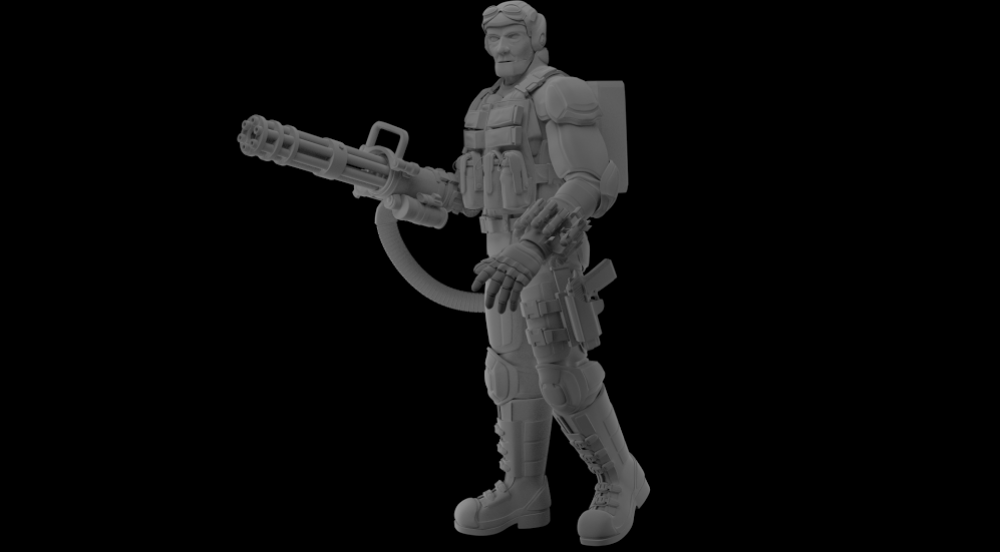
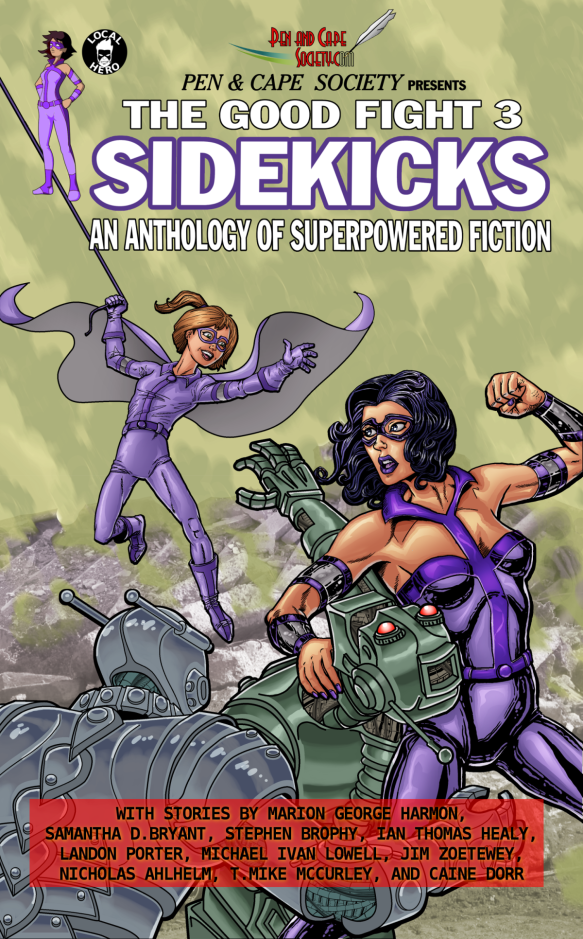
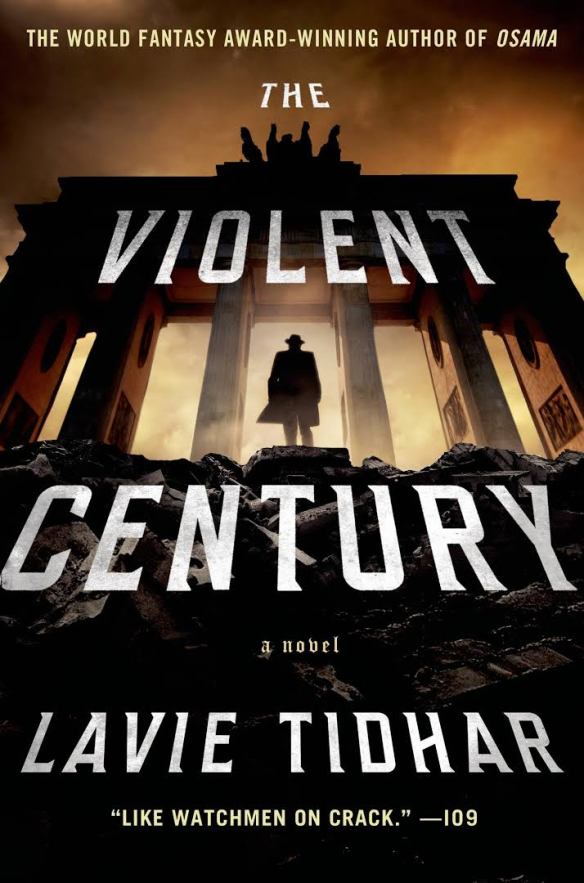

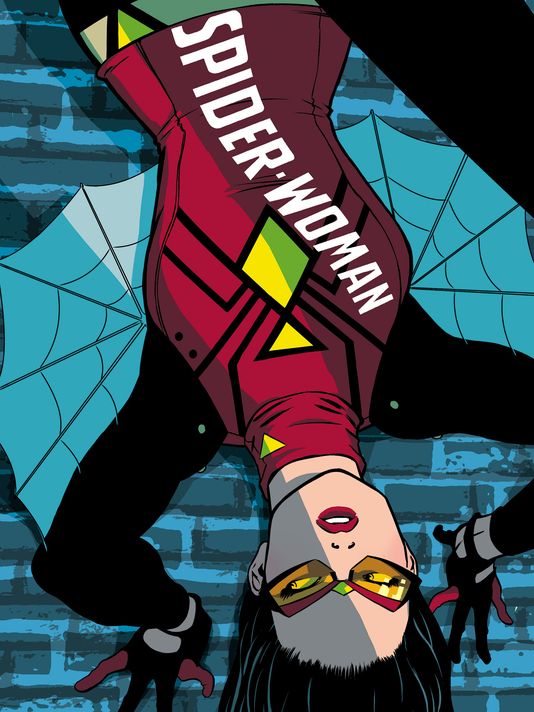
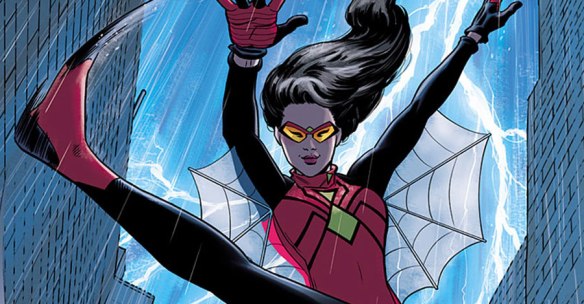
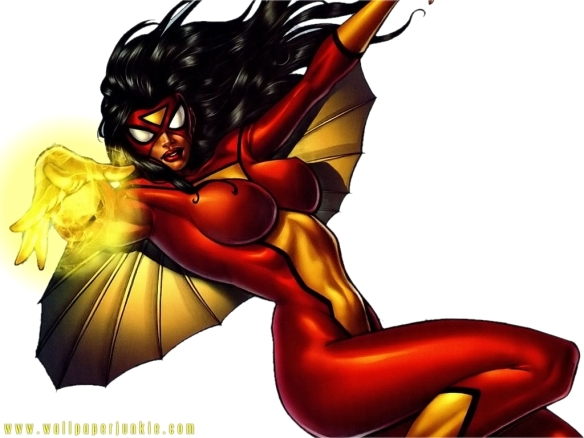
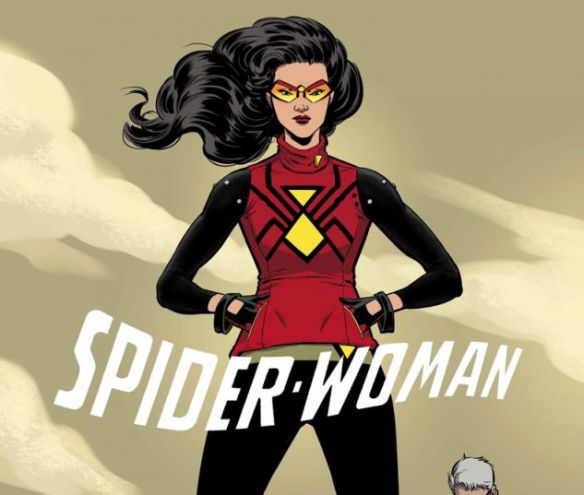 Continuing this streak of real-world feminism and self-propelled sisterhood, Hopeless and Rodriguez craft a terrific story arc in which Jessica, now striking out on her own as a private detective, her time with the Avengers in the rearview mirror (for now), takes a keen interest in the cases of multiple missing women. All of these women–and some children–have one thing in common: they are the wives, girlfriends and significant others of a who’s-who of supervillains, henchmen, and assorted powered goons. Teaming up with the Daily Bugle’s hardest working investigative journalist,
Continuing this streak of real-world feminism and self-propelled sisterhood, Hopeless and Rodriguez craft a terrific story arc in which Jessica, now striking out on her own as a private detective, her time with the Avengers in the rearview mirror (for now), takes a keen interest in the cases of multiple missing women. All of these women–and some children–have one thing in common: they are the wives, girlfriends and significant others of a who’s-who of supervillains, henchmen, and assorted powered goons. Teaming up with the Daily Bugle’s hardest working investigative journalist, 